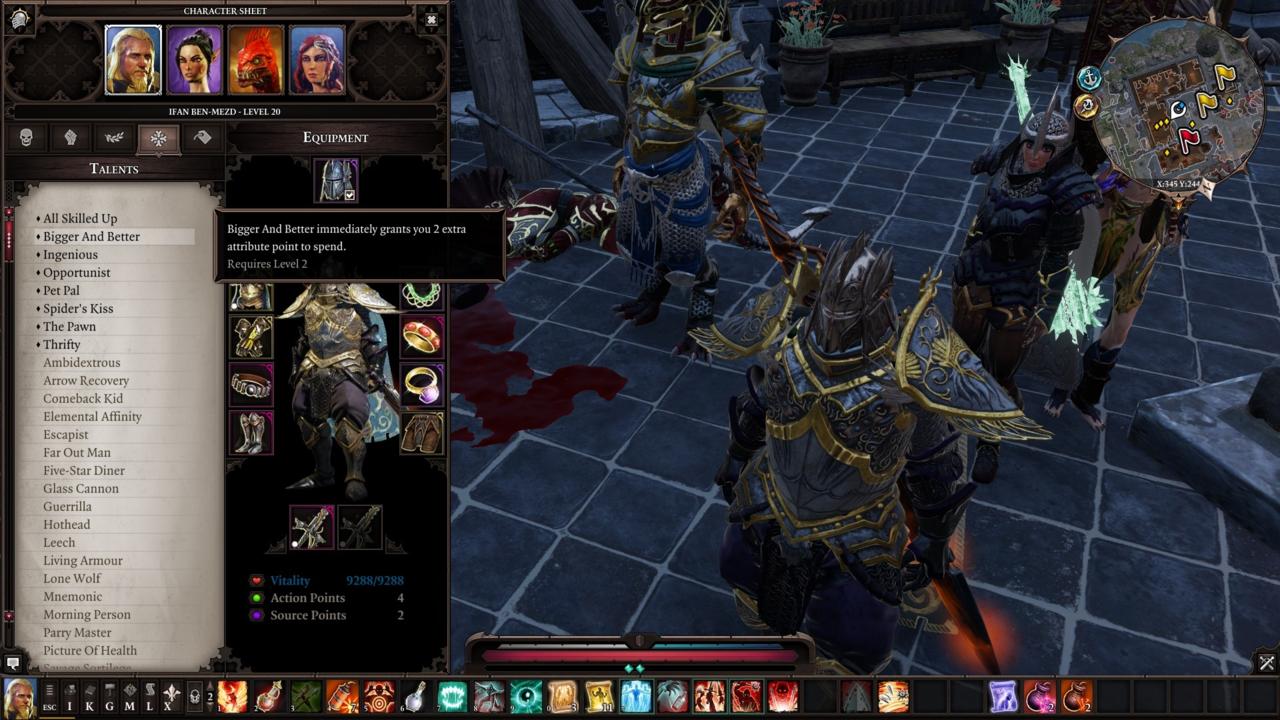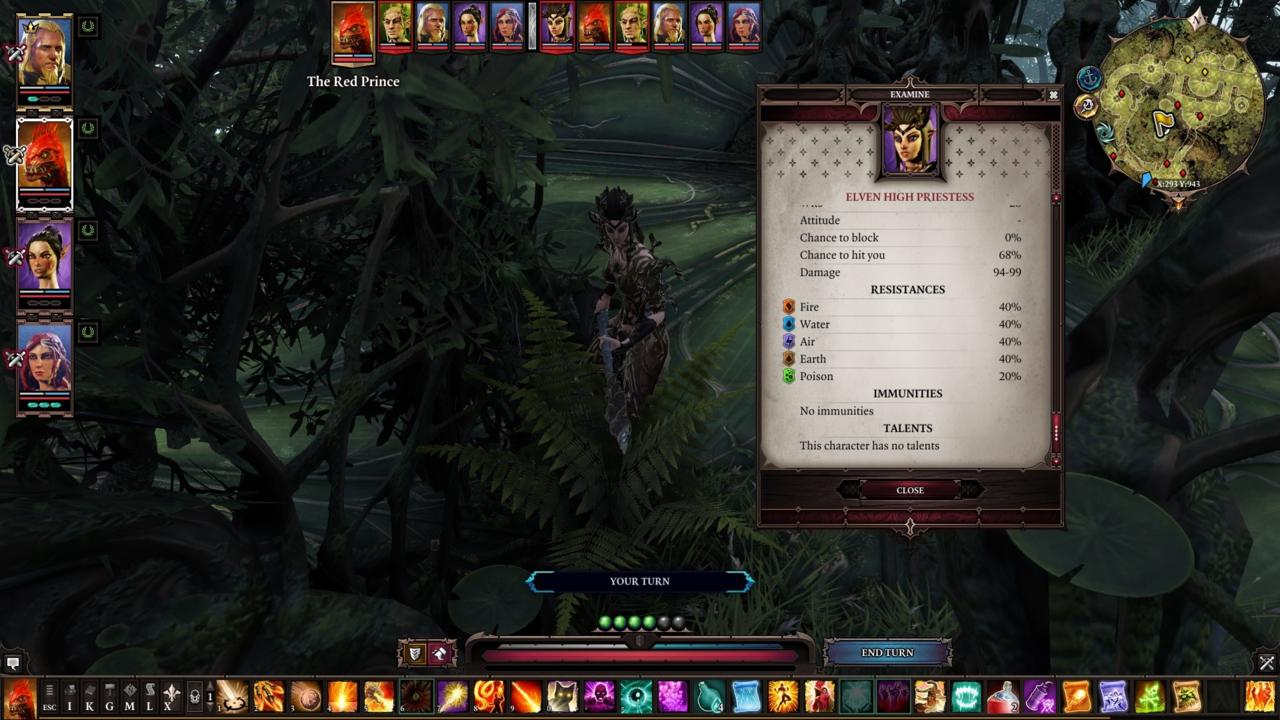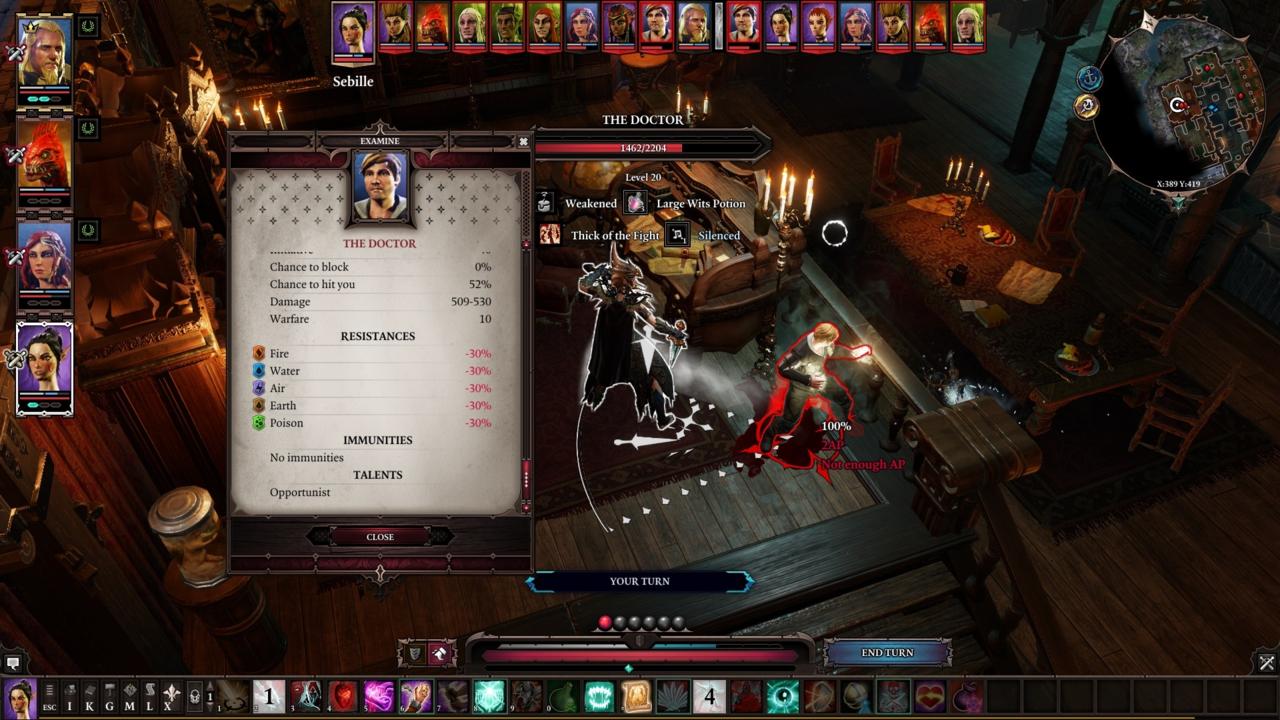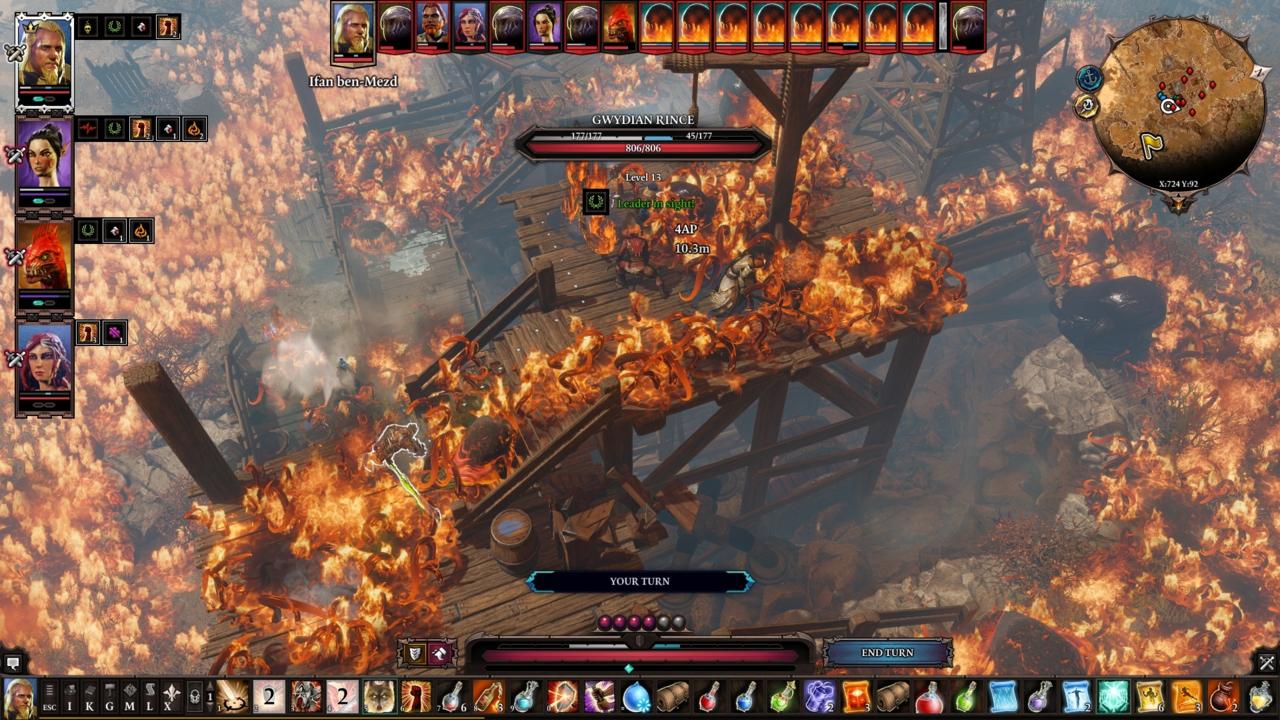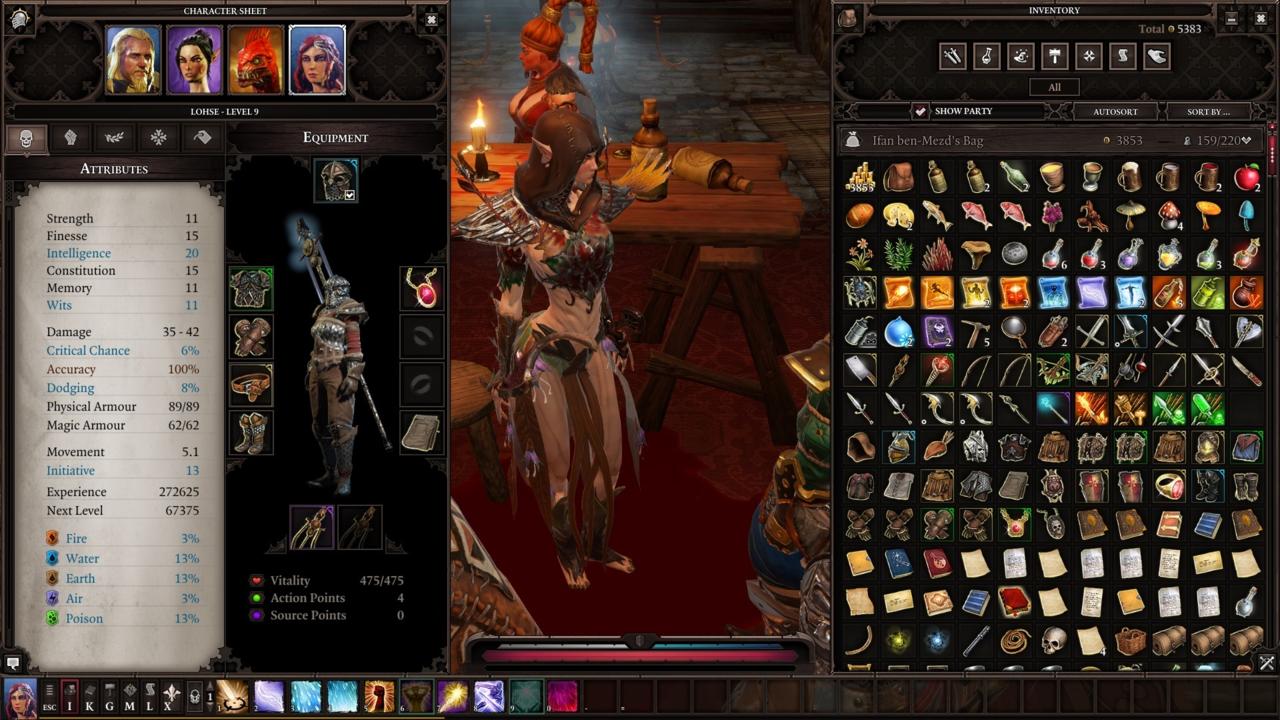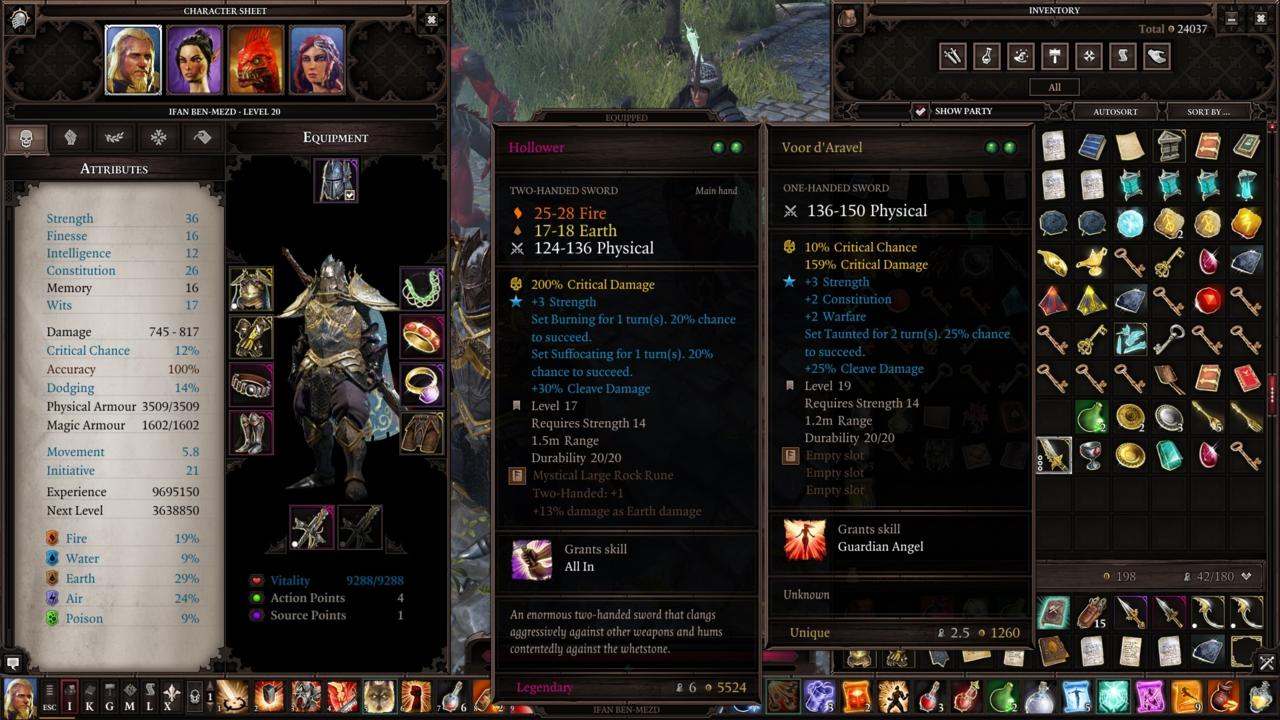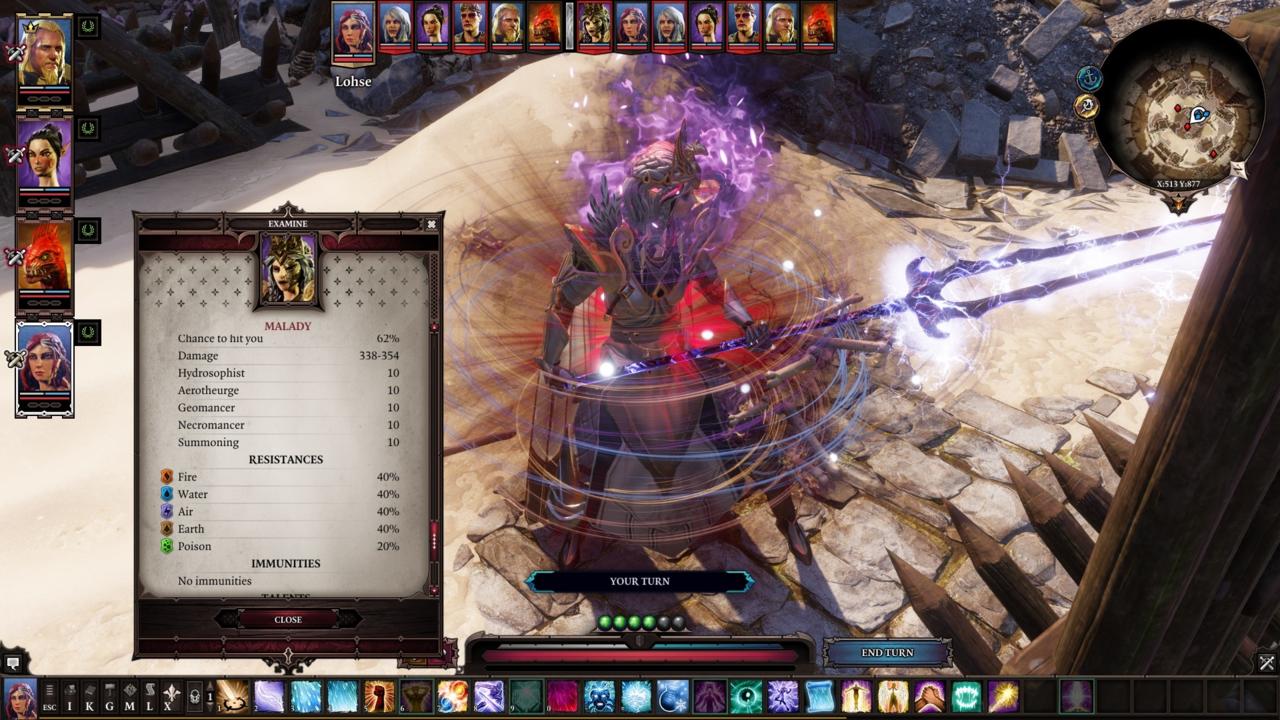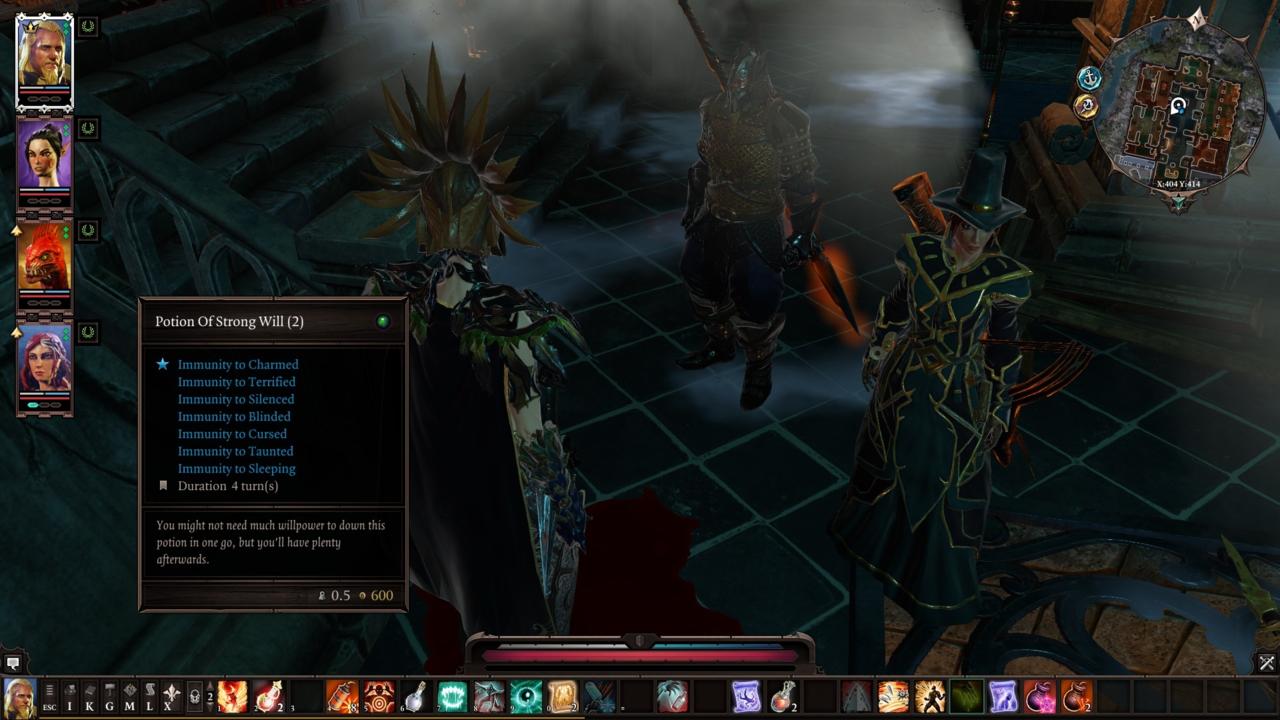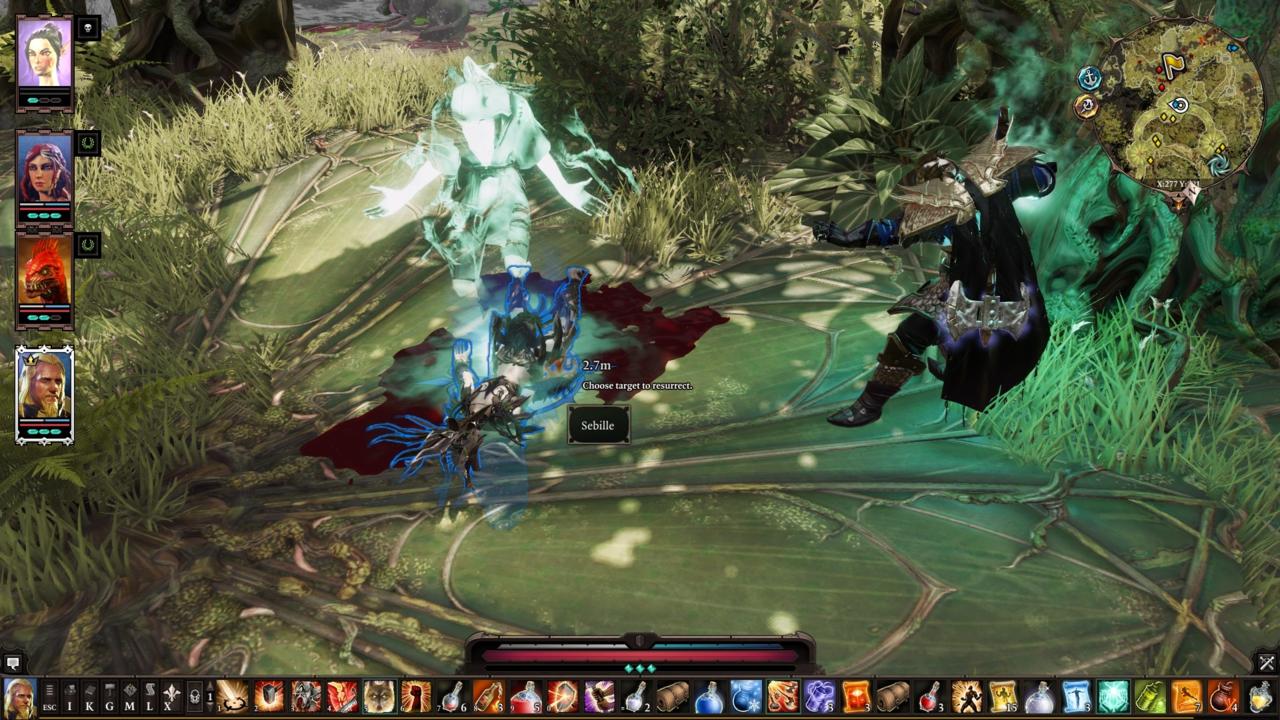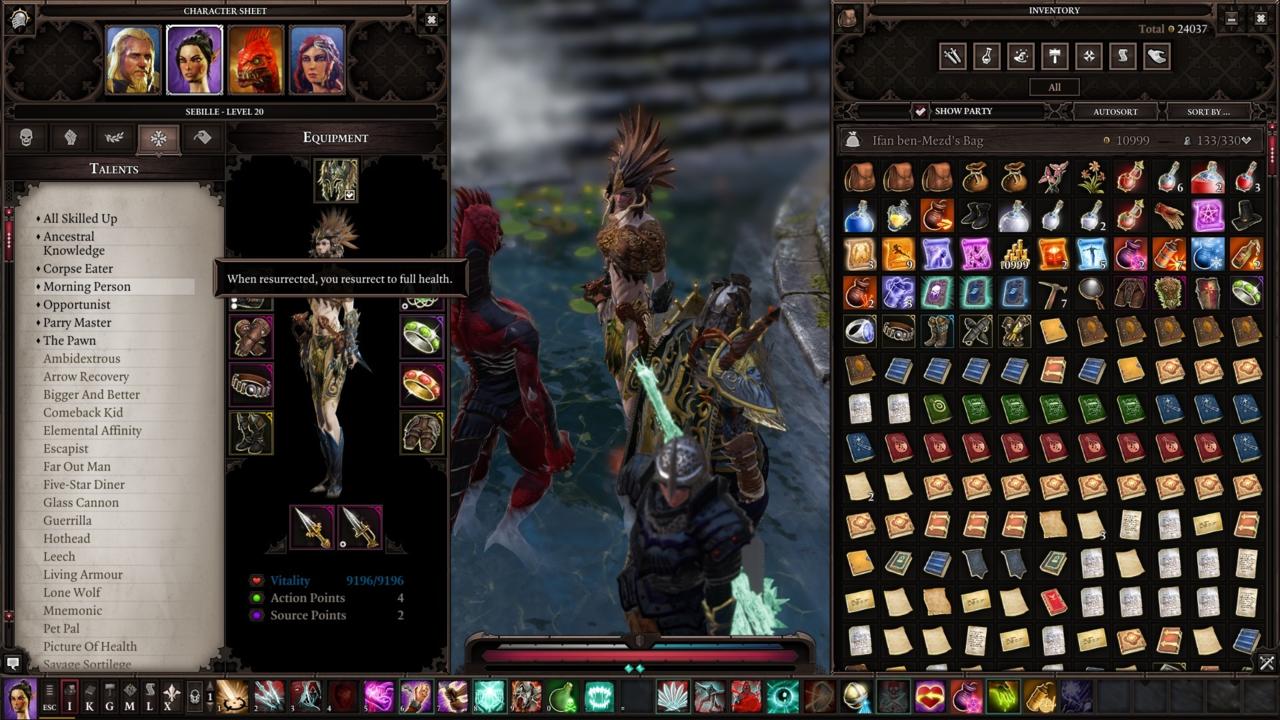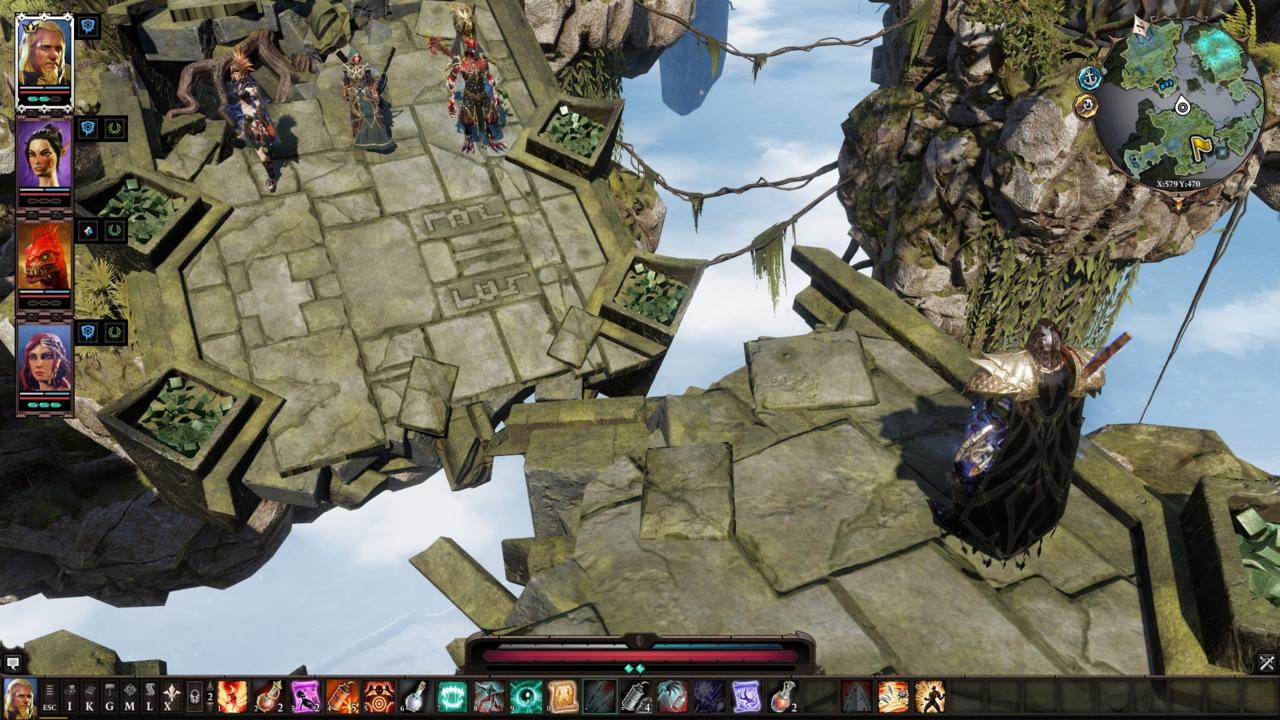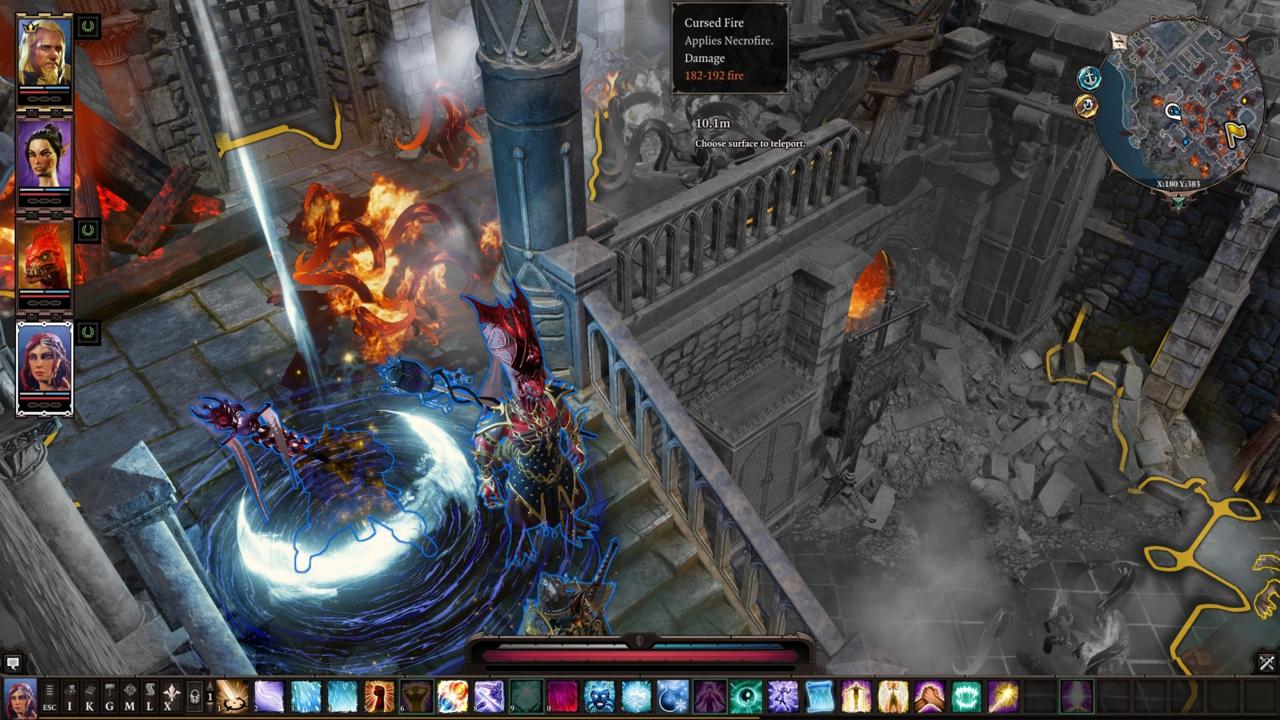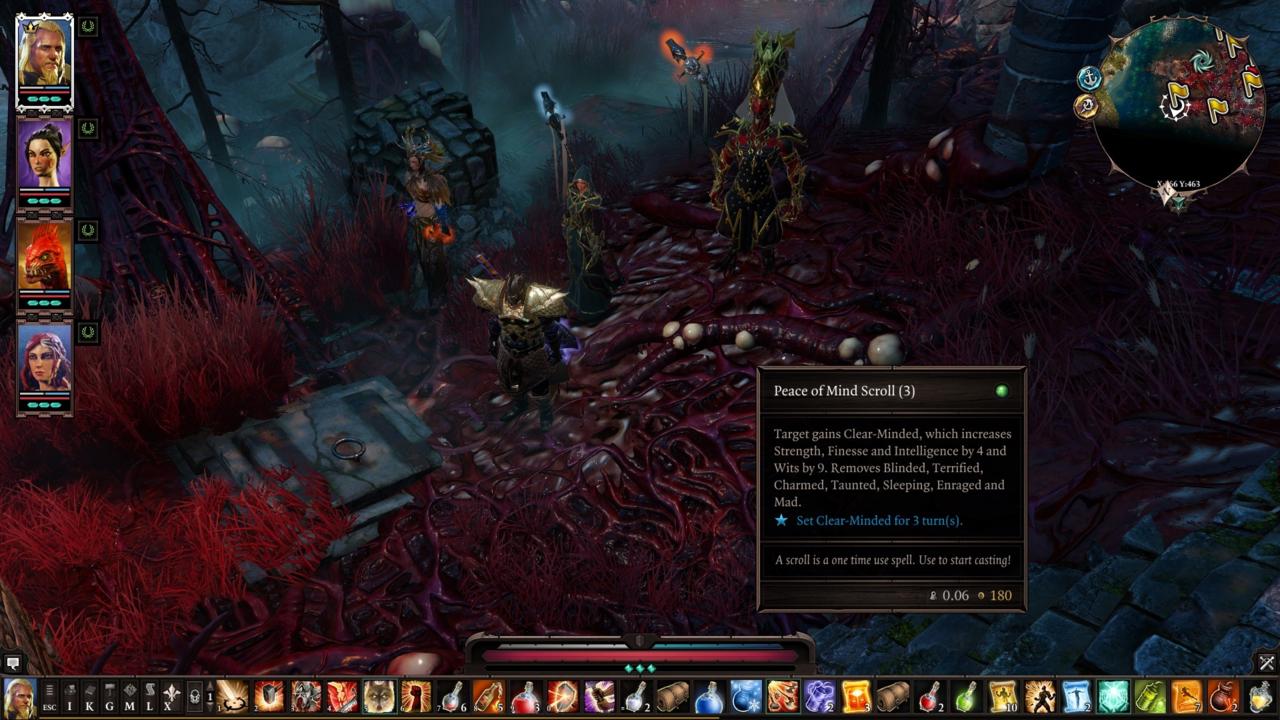Divinity: Original Sin 2 Expert Guide - Advanced Tips For Skills, Combat, And More
GameSpot may receive revenue from affiliate and advertising partnerships for sharing this content and from purchases through links.
Upping Your Chances of Survival
Divinity: Original Sin II is one of the best RPGs of all time. It's also one of the most challenging, with a deep and intricate storyline, tons of quests, and tactical combat that demands the most out of players. Click ahead for some expert tips on how to tackle the game's various challenges, as well as details on what you need to do to become a god in the fantasy land of Rivellon.
Be aware that there are some spoilers in the following slides, so be careful reading on if you don't want some specific situations revealed to you. And if you're not the most experienced player, you can check out our beginner's guide and tips on picking the right class.
For more about the acclaimed RPG, be sure to read our Divinity: Original Sin II review. The game is out now for PC, but it's been in Steam Early Access for almost a year. It's the sequel to our 2014 PC Game of the Year, Divinity: Original Sin, and it netted over $2 million from 40,000 fans on Kickstarter. It features over 1,200 characters, all of them fully voice-acted.
For more on how to better play Divinity: Original Sin II, check out our roundup of glass guides, tips, and walkthroughs.
Man's Best Friend
The Pet Pal talent may seem like a waste of time early in the game when you have more important skills to focus on. But don't skip it forever, as it allows you to converse with every animal in the Rivellon. Your interactions with animals provide some of the most memorable moments in the game. Most offer comic relief or provide a little pathos (some of the dogs can break your heart), but some open up quests and even warn you of dangers up ahead.
Rune It Up
One of the more interesting aspects of combat in the game is the use of magical runes to power up weapons, armor, and items. Make the most of these nifty gadgets and be sure that all of your gear with available rune slots are loaded up, as they provide sizable bonuses to damage and defense. Runes are attuned to the various elements in the game as well, so you can use them to specialize in different forms of attacks and better tackle enemies with immunities. Being able to swap out a two-handed sword with air-bonus runes for an axe with water-bonus runes, for instance, comes in handy if you happen to run into goons with heavy air immunities.
Bigger and Better Boost
Bigger and Better is another Talent you should select with all characters as soon as possible. It instantly provides two extra attribute points, which of course can offer a leg up in the early stages of the game and let you buff key stats the like Strength and Constitution. These added points can make all the difference in the opening battles, where success or failure rides on these extra points and how they buff your character's combat effectiveness.
Take Notes and Mark the Map
One of the few flaws in Divinity: Original Sin II is how poorly it tracks quests in the in-game journal. Take a page from old-school roleplayers and keep a notepad alongside the computer to track important points on paper. Also, be sure and regularly check the map when you visit key locations and see if they have been marked. If not, be sure and put down a blue flag and text to clue you in to what can be found there.
All this might seem like added fuss and bother, but keeping careful records is critical in a game this long and convoluted. You will thank yourself for those notes and map markers many hours down the road, when you realize that the journal doesn't include enough information about what to do to finish a quest or you can't find something on the map
Having to track things manually also adds to the game's charm and buffs its pen-and-paper street cred. And don't whine too much—at one time, RPGers also had to map their progress with hex paper.
If You Don't Succeed at First…
Success or failure often hinges on skill checks in conversations. Turning off an NPC by failing at a persuasion check can lock out quests and make it much more difficult to complete them. Just remember that you can generally try every conversation with all four members of your party. Blow it the first time? Keep going until you've run through the entire party. This little cheat can also let you explore other dialogue options so you can see everything that a character has to say.
Use the Examine Option During Every Combat
Take a moment to right-click on enemies and choose the Examine option at the start of every significant battle, especially in the final third or so of the game. Doing so opens a full description that reveals each foe's detailed statistics, including immunities to physical and magical attacks. One mistake during a single turn in combat can cost you a battle in the later stages of the game. So don't make it any easier for the bad guys by casting something like Fossil Strike on a foe that has full immunity to Earth magic.
Don’t Forget About Sneaking
Even though Divinity: Original Sin II is largely about blade-on-blade, fireball-on-fireball battles, sneaking can be incredibly important. Remember to try it during difficult battles to try and gain an edge on the opposition. It can turn a tough fight into a cakewalk. Just ask Doctor Daeva. Sneak an assassin type like Sebille close to this demonic villain before triggering his dialogue and you may just get the initiative in the coming battle. Do it just right and you can actually kill Daeva before he has the chance to morph into his much more powerful demon form. This makes one of the most challenging battles in the entire game a breeze. Sneaking can also let you creep close enough to those creepy Shriekers to take them out with Source Vampirism.
When In Doubt, Cheat
You've gotta do what you've gotta do to escape the brutal fights in Divinity: Original Sin II. So remember to examine your surroundings closely whenever you fail a fight and rearrange or destroy potentially deadly items like oil barrels before engaging in a second go-round. Quite a few battles in the game demand this sort of semi-cheating approach, most notably the crazy fight with the fire Voidwoken during the Blackpit battle to save Gwydian. Careful rearrangement of oil barrels limits the amount of Necrofire that can easily consume your party. Fail to make these changes and you can expect the entire area to explode in this cursed fire. And some well-placed boxes can also fence in Gwydian, whose poor AI makes him stupid enough to kill himself.
Know Your Equipment
Take the time to regularly go through your gear and determine exactly what it does. There is so much cool loot to acquire here that you can easily get overwhelmed by bulging packs loaded with everything from wheels of cheese through magical elven staffs. Set a routine of reviewing your entire inventory after each significant quest so that you can mentally catalogue what you have just acquired and ensure that the party is best equipped for the battles to come. Doing this by a trader is a good idea, too, so that you can cull gear for sale immediately after making adjustments to character load-out and keep your packs (reasonably) lean and mean.
Look Closely at High-Level Gear
Higher level gear requires attention. Some items may have lower base numbers in physical and magical armor, but make up for it in a big way with serious attribute buffs and added magical skills.
Watch those buffs, as well. Don't be too quick to sell something that you don't use very often, because the wide variety of enemies in the game mean that you need a wide variety of weapons and gear to best battle them. It's always better to have a useful weapon or piece of armor in your pack during a big battle than a bunch of cash. Gold won't save you, but that magical mace that you're keeping around for a rainy day just might.
But if you want to cut to the chase and assess the true worth of an item quickly without a more detailed analysis, look at the sale value at the very bottom of the description box. Don’t be fooled by item levels, or by fancy tags like "Unique" and "Legendary." Money talks. Listen to it.
Be Prepared for High Immunity Enemies
Combat later in the game almost always features foes with immunities to different forms of physical and magical attacks. Prepare for this by stocking a wide range of items on each character for various combat situations, such as weapons with attack bonuses linked to each of the game's elemental characteristics. Vary your magical skills as well. You don't want to be stuck with, say, a mage loaded with nothing but fire magic when you encounter creatures with 100% fire resistance.
Of course, this is also true for defense. Keep multiple sets of key armor and other defensive items on hand so you can switch to them when necessary during battle, depending on how your opponents are attacking. This can make inventory management something of a chore, but you won't care about how crowded your backpack has become if you always have something in there to help out during battles.
Keep Potions of Strong Will on Every Character
The importance of quick access to healing and armor potions goes without saying, but another one that you will want to have in every character's pack is Strong Will. This handy red concoction prevents party members from being afflicted by most mental spell effects that cause them to be charmed, terrified, cursed, and so forth. Combat in the later parts of the game often features mages and monsters with these effects, so it's vital to be able to counteract them.
Resurrection and Haste
Load every character with as many Resurrection scrolls as you can afford. Being able to quickly bring fallen allies back to life and get them fighting again as soon as possible is a fundamental part of surviving late-game encounters. Many battles can't be won without reviving your dead.
Haste is also necessary. Battles with numerous foes spread across the battlefield and on elevated platforms can be made much easier to handle when you can turn your heroes into sprinters and enable them to reach enemies in an expeditious manner. Haste also helps run down enemy spellcasters and those with ranged weapons, as these cowards always choose the better part of valor and flee close-quarters combat.
Be a Morning Person
One of the most valuable talents in the game is Morning Person, which ensures that a resurrected character comes back to life with full health. This ability becomes incredibly important later in the game when you regularly need to resurrect allies during combat, as the standard revival brings heroes back with very little health and sets them up to be killed again in short order. Consider taking Morning Person with every character as soon as possible (although it's particularly vital for your most crucial characters in combat, like your tank fighter and your most powerful mage) when leveling up. It will dramatically increase your options of beating the tougher late-game battles by getting your party members back in the game and ready to fight almost immediately after they're killed.
Keep the Gloves of Teleportation
Even though you acquire these gloves very early in the game and they seem low powered due to their underwhelming value and stats, never let them go. They are essential at many key moments in the campaign, right through to the conclusion. You can use them to take short cuts through quests, most notably the big god one on the Nameless Isle where you have to do things like ascend floating islands, and access areas that are otherwise inaccessible.
Gloves of Teleportation are also quite handy during combat, as they allow you to quickly get to enemies in slightly distant or elevated locations. The gloves can also be huge parts of your strategy to take on a number of major battles. They come in particularly useful during the brutal final battle in the Red Prince storyline, for instance. Teleporting party members makes it much easier to destroy the sizable number of black mirrors spread all over the battle arena there to prevent enemies from endlessly respawning.
Use Spirit Vision--A Lot
Never forget about the Spirit Vision skill acquired about midway through the game. The ability to see and converse with otherwise hidden ghosts becomes more and more crucial in the later stages of the game, as these spectral goons often have key information for the successful resolution of quests. Spirit Vision also opens up parts of the game that otherwise go unseen. The dimensional doorway in the garden behind the Lizard Consulate in Arx is one good example here, as it cannot be accessed until you reveal it with Spirit Vision.
Remove What's Underfoot with Terrain Transmutation
Battling environmental issues can be as much of a problem as actual enemies. One good way to get rid of something pesky that's underfoot like some oil, ice, or Necrofire is to use the Terrain Transmutation Polymorph skill and swap the bad stuff with some basic rock or grass nearby. One particular area where it comes in very handy is the burning Lizard Consulate in Arx, as you need to get rid of the Necrofire to prevent the Cursed Revenant enemies from endlessly respawning. Moving it as far away as Terrain Transmutation can reach does the trick.
Boost Your Wits
A high score in the Wits character stat is vital to spotting secret doors, hidden archways, and even buried chests of loot. Make sure at least one party member is regularly adding to this score when leveling up, or you will miss out on quests or key information needed to readily solve the game's many mysteries.
Also, remember that the Peace of Mind skill is a huge benefit here, as it dramatically ups the Wits score of the targeted character. Use it if you're stumped. It's most useful when trying to access the underground vaults where the possessed are imprisoned on Bloodmoon Island.



